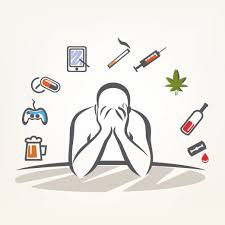The Role of Therapy in Long Term Addiction Recovery
- Collective Care

- Jul 18, 2025
- 2 min read
Addiction is not just about substance use, it's about what lies beneath it. Long after detox ends and physical cravings subside, the real challenge of sustaining recovery begins. This is where therapy becomes not just helpful, but essential. At Collective Care, Pune’s best inpatient de-addiction and rehabilitation life skill centre, therapy forms the cornerstone of our long-term recovery programs.
Why Detox Alone Isn’t Enough?
Detox can cleanse the body, but addiction is rooted in the mind and emotions. Without addressing the psychological patterns, trauma, or co-occurring mental health conditions that contribute to addiction, relapse is likely.
Therapy ensures that individuals:
Understand the triggers behind their substance use.
Develop coping skills to manage stress and cravings.
Rebuild a sense of identity and purpose.
Heal underlying emotional wounds such as abandonment, shame, or trauma.
Reconnect with family and rebuild relationships.
Find new meaning, passions, and purpose.
Learn to live with difficult emotions without escape.
Set healthy boundaries and goals.
Types of Therapies That Support Long-Term Recovery
At Collective Care, therapy is personalized and multi-dimensional. Some of the key approaches include:
1. Cognitive Behavioural Therapy (CBT)
CBT helps individuals identify negative thought patterns that lead to substance use and replace them with healthier beliefs and behaviours. It’s especially effective in managing relapse triggers. Reframing self-defeating thoughts and building resilience
2. Dialectical Behaviour Therapy (DBT)
DBT emphasizes emotional regulation, distress tolerance, and interpersonal effectiveness skills vital for long-term sobriety, especially for those with intense emotional responses or past trauma.
3. Mindfulness-Based Therapy
Staying present helps individuals become more aware of their cravings without reacting to them. Mindfulness reduces stress and improves emotional balance, the two key relapse triggers.
4. Trauma Work
Addiction often stems from unresolved emotional pain. Exploring one’s underlying attachment styles, coping mechanisms, and maladaptive patterns can reveal early experiences of neglect, abandonment, or abuse that fuel substance dependency.
5. Group Therapy
Recovery thrives in a community. Group therapy provides shared experiences and validation, peer accountability and a sense of belonging.
The Role of Clinical Psychologists in Recovery
At Collective Care, our team of experienced clinical psychologists plays a central role in every client’s healing journey. We offer One-on-one psychotherapy, assessments for co-occurring disorders and guidance in developing personalized recovery plans. Our clinical expertise ensures that every therapeutic approach is rooted in evidence-based practice, compassion, and deep understanding. Therapy Helps You Rebuild Life, Not Just Quit Substances
Addiction recovery is not about becoming who you were before addiction. It’s about becoming grounded, more aware, connected, and self-directed.
Why Choose Collective Care for Long-Term Recovery?
Located in the state of Maharashtra, Collective Care, a speciality rehab offers a safe, supportive, and structured environment for healing. What sets us apart:
A holistic recovery model made up of therapy, mindfulness, yoga, gyming, creative art, gardening and cooking.
A compassionate team: clinical psychologists, counselors, peer recovery coaches, and psychiatrists
Specialized therapies for trauma, behaviour, emotional regulation, and inner healing
Focus is on long lasting sustainable recovery, not just short-term sobriety
Without therapy, recovery remains superficial. But with the right therapeutic support, individuals can truly transform, not just quit. At Collective Care, we believe every person deserves the chance to rewrite their story with clarity, purpose, and support.


